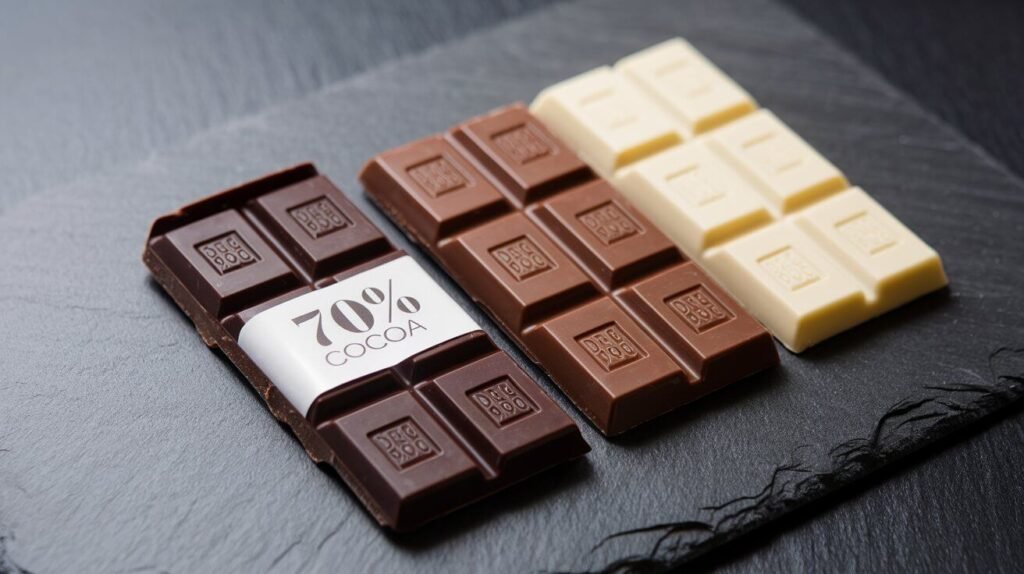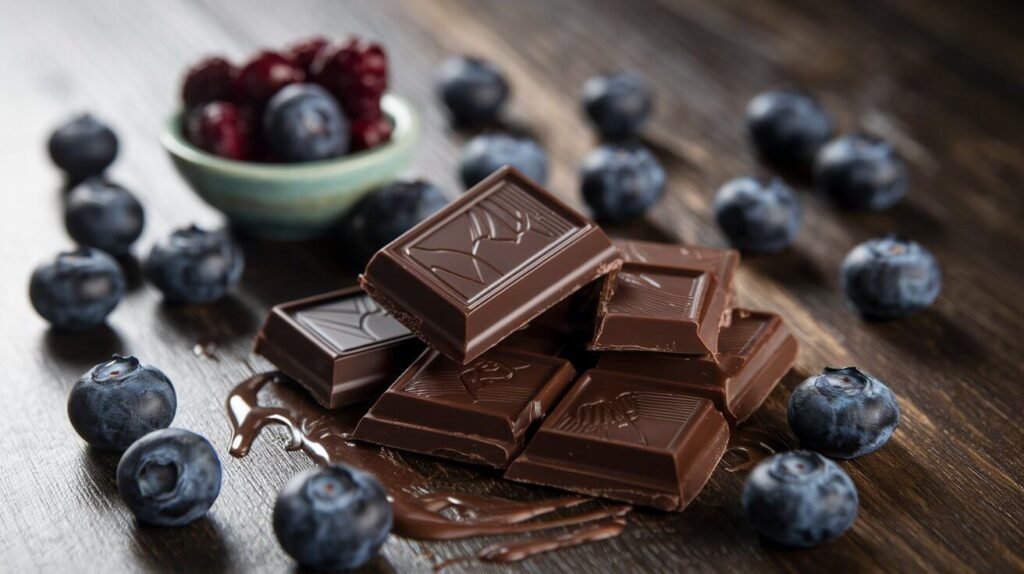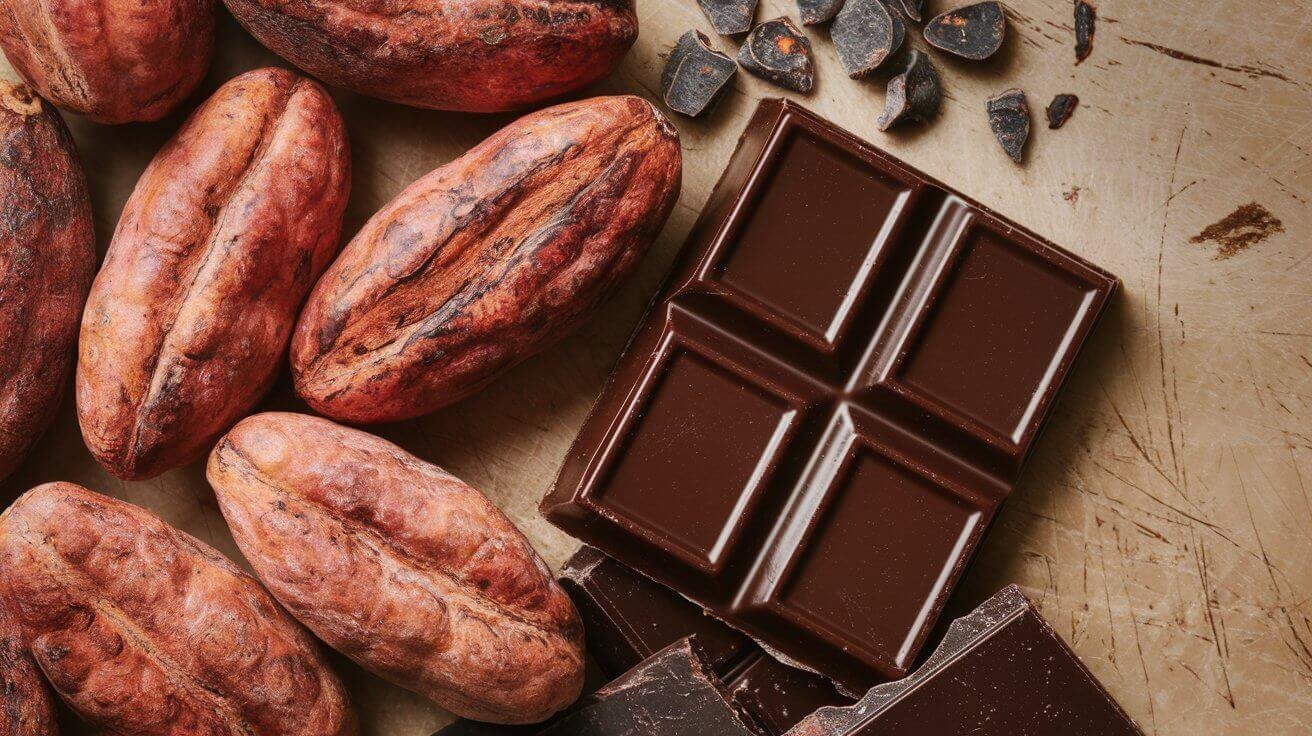Explore Healthy Living
Chocolate — the name itself would just pour in, some warmth and coziness with a pinch of happiness. Chocolate is often regarded as a guilty pleasure, it is loved by many, yet feared by those mindful of their health. Ok, but what if you know that there’s a type of chocolate you can indulge in without the guilt, one that’s not only delicious but also brimming with health benefits? That is where dark chocolate comes in — a prehistoric delight that has become one of the most popular superfoods for body and mind over the past few years. This article will walk you through the magic of dark chocolate, and why this bittersweet treasure should be a permanent part of your diet.
What Makes Dark Chocolate Different?
To fully enjoy all the benefits of dark chocolate, it is essential to know what differentiates it from other types of chocolate, including milk or white chocolate. Dark chocolate contains a much higher percentage of cocoa solids, which are responsible for its distinctive bitter taste and rich, complex flavor. Cocoa solids contain a high amount of bioactive compounds which function as antioxidants, and are associated with beneficial effects on inflammation and blood vessels among other health benefits.

The key to these benefits lies in the purity of the chocolate. Compared to other types of chocolate, it is less sweet because dark chocolate usually contains 70% or more cocoa so can be a bit bitter but much more nutrient-packed. The higher the cocoa content, the lower the sugar and fat content (assuming it’s high-quality chocolate), making dark chocolate a healthier option overall.
A Nutrient-Rich Delight
While chocolate is viewed as an indulgence, dark chocolate has some surprising healthy qualities. It’s loaded with essential minerals like iron, magnesium, copper, and manganese, which play important roles in your overall health. Iron is essential for the formation of hemoglobin which carries oxygen throughout your body, magnesium plays an important role in supporting muscle function and is needed to maintain normal blood pressure. Copper and manganese, on the other hand, help in the formation of enzymes that protect against oxidative stress.
Dark chocolate is also high in fiber. A 100-gram bar of 70–85% dark chocolate has about 11 grams of fiber, which is good for digestion, gut health, and satiety. Of course, you should not be eating a whole bar in one serving but even just a small square of dark chocolate is helpful in meeting your recommended daily nutrient intake.
Antioxidant Power: Combatting Free Radicals
Dark chocolate is a potent source of antioxidants, which are responsible for helping the body from oxidative damage caused by free radicals, unstable molecules that can impair cells and play roles in aging and diseases like cancer. The content of flavonoids — a group of antioxidants in dark chocolate sets it apart from many other foods. In fact, dark chocolate actually contains more antioxidants than popular ‘superfoods’ such as blueberries and acai berries!

Indeed, clinical studies have shown the specific flavonoids in dark chocolate, such as catechins and epicatechins, help to neutralize free radicals, reduce inflammation, and even lower the risk of chronic diseases. Dark chocolate fights oxidative stress, which prevents your body cells from aging prematurely and being damaged, which leads to even more severe health issues.
A Heart-Healthy Sweet
One of the most well-known advantages of dark chocolate is its role in heart health. Many studies show that some of the benefits of dark chocolate include reduced risk of heart disease and other cardiovascular problems when consumed in moderation. That is mainly because of the flavonoids in dark chocolate, they help by promoting nitric oxide production, a compound that relaxes blood vessels and improves blood flow.
Better blood circulation = lower risk of heart related problems like high blood pressure, atherosclerosis where arteries become stiff and narrow due to plaque buildup. Dark chocolate also helps to keep your heart healthy by promoting good circulation and reducing the risk of heart attacks and strokes.
Not only that, dark chocolate reduces the level of cholesterol and its one other benefit. That it can reduce LDL cholesterol (the “bad” one) and increase HDL cholesterol (the good one). This balance prevents the accumulation of plaque in the arteries, further protecting against heart disease.
Boosting Brain Function and Mood
The benefits of dark chocolate are not limited to the heart; they also help in maintaining brain health. They enhance blood flow to the brain, which can lead to better cognitive function. According to studies, dark chocolate can improve various aspects of brain function, including memory, attention, and problem-solving skills. It may even help protect against neurodegenerative diseases such as Alzheimer’s and Parkinson’s by delaying the onset of cognitive decline.

In addition to its effects on cognition, dark chocolate is a known mood elevator. Eating dark chocolate triggers the release of endorphins—natural chemicals in the brain that promote a feeling of happiness and well-being. Dark chocolate also contains serotonin, a neurotransmitter that regulates mood and helps combat anxiety and depression. This is why a lot of people crave dark chocolate when they are stressed or simply lift their spirits after a challenging day.
Dark chocolate also contains small amounts of caffeine and theobromine, both can boost alertness and provide a gentle energy boost without the jitters associated with coffee.
Skin Protection from the Inside Out
Dark chocolate can even help with your skin, believe it or not. The flavonoids in dark chocolate not only protect against oxidative stress but also offer protection against the damaging effects of ultraviolet (UV) rays from the sun. Researchers found out that regular consumption of dark chocolate can enhance skin’s ability to resist UV damage, thereby reducing risk for sunburn and other skin afflictions caused by excessive exposure to sunlight.
Plus, the improved circulation consumption of dark chocolate helps deliver oxygen and nutrients to the skin, enhancing its appearance. This can lead to a healthier complexion, smoother skin, and even fewer wrinkles. It helps improve blood flow and can help your skin look more young and radiant.
Dark Chocolate and Blood Sugar Control
While dark chocolate may seem like an indulgence that should be avoided by those watching their blood sugar, the reality is quite the opposite. Dark chocolate is low on the glycemic index, which means it doesn’t spike your blood sugar. Flavonoids in dark chocolate can also improve the insulin sensitivity, meaning easier blood sugar control for your body.
This is great news for people with diabetes or those at risk of developing it, as improved insulin sensitivity means a lower chance of blood sugar imbalances. Yet, this benefit is overridden if they consume dark chocolate with added sugars in high quantities.
Can Dark Chocolate Help with Weight Management?
The idea of dark chocolate and weight loss in the same sentence may sound implausible, yet research hints that it potentially is able to contribute to weight management, within a sensible diet. One possible explanation is its rich content of fiber, which may result in increased satiety and reduced total calorie intake. The rich, intense flavor of dark chocolate also tends to satisfy cravings more quickly than sweeter, lighter chocolates, making it easier to resist overeating.
In addition, dark chocolate contains healthy fats, such as oleic acid (a monounsaturated fat also found in olive oil), which can have a mild thermogenic effect, helping to boost metabolism. This means your body has to work harder to digest it, so dark chocolate is a tiny bit better than other sugary snacks.
Additionally, dark chocolate has been found to reduce cravings for sweet, salty, and fatty foods, which can be a helpful tool in preventing overeating and mindless snacking. However, it’s important to keep portions in check—too much of even the healthiest chocolate can lead to weight gain due to its high calorie content.
How to Choose the Right Dark Chocolate
All dark chocolate is not created equal. To reap the health benefits of dark chocolate you should opt for quality dark chocolate with a cocoa content of 70% or higher. The higher the cocoa content, the more flavonoids, antioxidants, and other beneficial compounds it will contain. Avoid dark chocolate full of added sugars, artificial flavors and unhealthy fats. Be sure to read the label to ensure you’re getting a product that’s as natural and pure as possible.
For those new to dark chocolate, the bitter taste may take some getting used to, especially if you’re accustomed to the sweetness of milk chocolate. However, the health rewards are well worth the transition, and many people find that their taste preferences change over time as they grow to appreciate the deeper, more complex flavors of dark chocolate.
Consume Moderate Amount
Dark chocolate is great for your health, as long as you take it in a moderate amount. Although it has lots of health benefits, dark chocolate is still high in calories and a 100-gram serving can have nearly 600 calories. To prevent overeating, stick to 1–2 ounces (30–60 grams) per day, that way you can enjoy the benefits without consuming excess calories.
Conclusion: A Treat with a Purpose
Dark chocolate has proven to be much more than just an indulgence. It is a nutrient-rich food that can improve heart health, brain function, support skin health, and even help blood sugar management among many others! In moderation, its potent antioxidants, good fats and fiber make it a smart option. Dark chocolate is a treat with benefits, whether you want to enjoy dessert without the guilt or improve your health in general. Opt for good-quality dark chocolate with a high cocoa amount and savor it in moderation, you will enjoy all the fantastic things that it has to offer while having great fun! So eat your dark chocolate with pleasure — it’s a guilty pleasure that relieves guilt.




